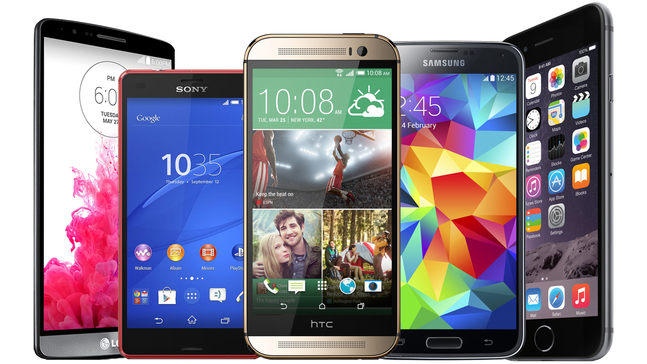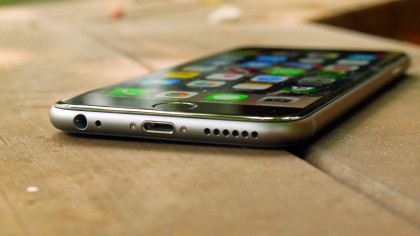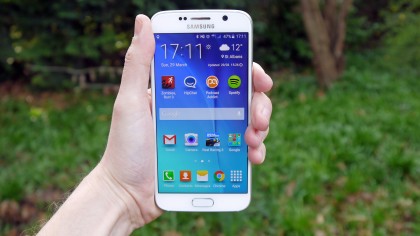How to choose a smartphone for work
Inspecting the specs

Choosing a smartphone for your business is up there in importance with selecting a computer; in certain ways it's even more critical as we have become so dependent on our mobile devices. Thanks to a plethora of options and near constant upgrades, the selection process isn't easy. Which system is best for you and, as the case may be, your employees? Which model is the most appropriate for your needs? The list of questions goes on.
Like other tech hardware such as laptops, smartphone models come with a list of specs – a detailed breakdown of all the product's features. It sounds simple enough, but if you aren't a techie, then the specs might appear like a bunch of jumbled numbers paired with random acronyms and foreign concepts. To help you make an informed decision, we've created a deep overview of what key specs mean, and highlighted where certain models succeed and others suffer.
The major players

Lets start with perhaps the most basic spec: the operating system. There are four major smartphone operating systems (OS): iOS (Apple), Android, Windows Phone, and BlackBerry. Each OS has its own set of competitive virtues, so deciding on one really comes down to personal preference. If you don't have an opinion yet, consider these core character traits:
iOS is widely considered to be more secure than those of competitors when it comes to threats of malware. It's a high-quality app heaven, and of all the operating systems on the market, is the priciest, which for a business may be a reason in and of itself to rule it out. But the iOS is popular for good reason: it's intuitive and requires virtually no set-up. Apple works by a “one at a time” philosophy, so while you can still buy older models for less, you essentially have two choices: iPhone 6 and iPhone 6 Plus. The latest iOS version is iOS 8.4.
Android comes with access to Google Play, which recently surpassed the Apple App Store for having the most apps. The platform is fairly malleable, so you can customize it as you like. The iOS is available on a wide variety of devices, so you can get extra picky. The biggest setback is that it does carry some security risk largely because Android allows the installation of apps from outside if its official App store. Android 5.1 is the latest version.
Windows Phone is lacking in the apps area in that it has only around 300,000 apps, where Google Play and the App Store have over one million. For many consumers this is a major concern, but it shouldn't be for a business. The platform touts native integration with Microsoft Office, a tool with which just about every business is familiar. Unlike other Windows products, notorious for their susceptibility to viruses, Windows Phone is a leader in security, according to research by the National Vulnerability Database. It's also extremely customizable. Windows Phone 8.1 is the latest upgrade of this OS, but Windows 10 Mobile is just around the corner.
BlackBerry OS isn't the go-to system it once was, and BlackBerry has struggled to reinvent itself over the years to reprise relevancy. Through all its incarnations, it has stayed true to its business roots. The OS is compatible with Android apps and those featured on the Amazon Appstore. Corporate email functionality and bulletproof security are arguably the biggest selling points of this OS, which is available in its most recent version as Blackberry 10.3.2 OS.
Sign up to the TechRadar Pro newsletter to get all the top news, opinion, features and guidance your business needs to succeed!
One way to begin the smartphone-for-business selection process is to choose an OS and then go through the various specs of that system's models. There are quite a few spec for every smartphone, so we've narrowed it down to the essentials: Power, speed, battery, storage, and display.
Assess your need for speed

The thing that makes your smartphone go vroom is the computer processing unit (CPU). Essentially, this is the brain of the phone – an electronic circuit of microchips that execute performance and speed. The more powerful the CPU, the more powerful the smartphone.
You can decipher the level of power via the number of GHz or MHz. The higher the number, the more powerful the engine is, so to speak. You'll also likely see a “core” listing (usually dual, quad, or octa). The more core, the better, too. Since you'll be using your smartphone for business purposes and presumably not gaming you probably don't require a mac daddy CPU. That said, you will likely be doing a lot of multitasking on your phone and will need multiple apps to run flawlessly at once.
One of the fastest smartphones you can purchase right now is the Samsung Galaxy S6. The Galaxy S6 is exorbitantly pricey for an Android device, so a business person working with tighter purse strings might want to consider the the Galaxy Note 4.
The iPhone doesn’t employ the same technology and terminology as its smartphone kin. Such is the Apple trailblazer way! If considering the iPhone 6, note that it has an A8 processor (no CPU mentioned here), which is famously strong, and runs on a lithium ion battery that is less than impressive, though better than previous incarnations.
Battery life

Bear in mind that a high caliber CPU doesn’t translate to a strong battery performance, and quite often the battery life suffers as a result of a robust CPU. In the specs sheet, check the battery capacity and consider models that have a capacity of 3,000 mAh and higher.
The Galaxy Note 4 fits that bill with a 3,220 mAh. The Galaxy S6 on the other hand only weighs in at 2550 mAh. If you’ll be traveling often or simply managing business on the go, you may also want to consider the OnePlus One, a low-cost, high-functioning Android that offers a 3100 mAh battery. Perhaps your best battery bet is the BlackBerry Passport, which has a whopping 3450 mAh battery. In the battery department, you may want to avoid Windows Phones altogether, though we’re optimistic about what updates Windows 10 Mobile will bring.